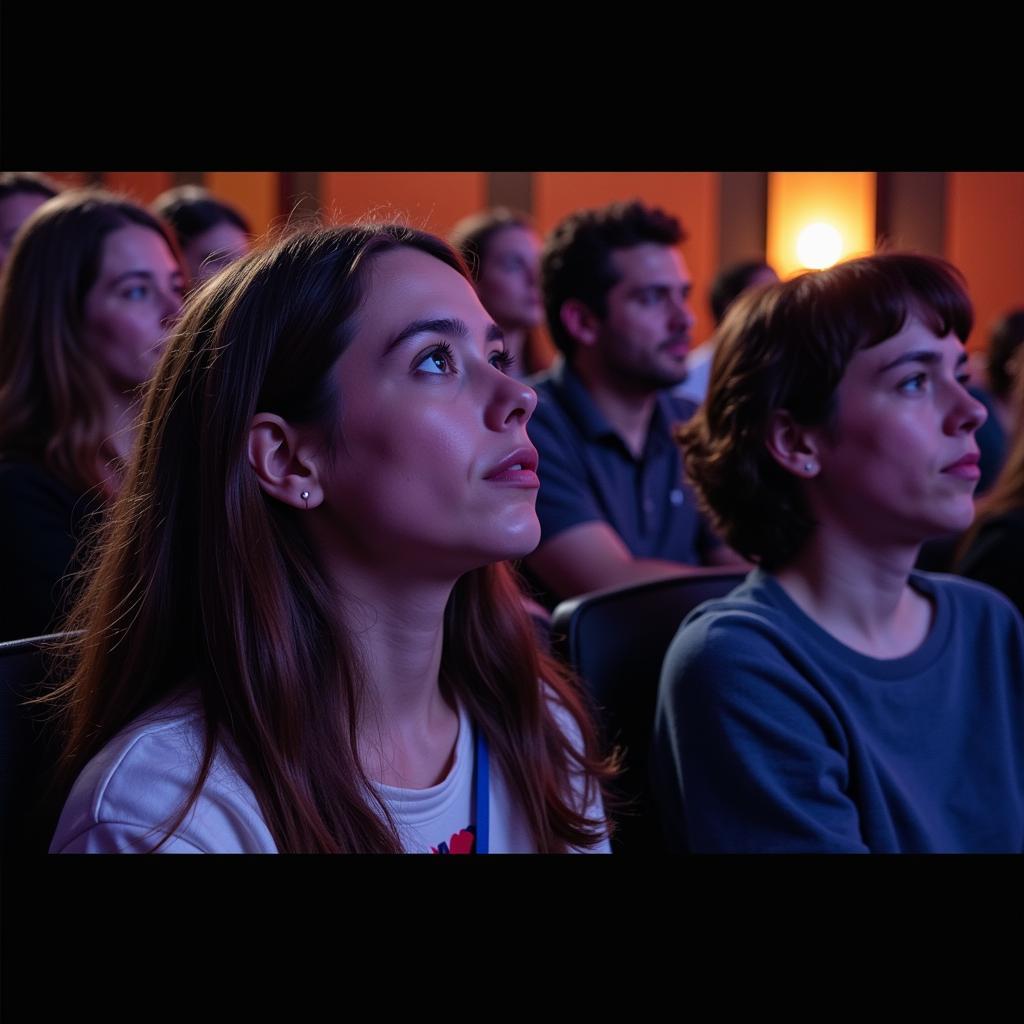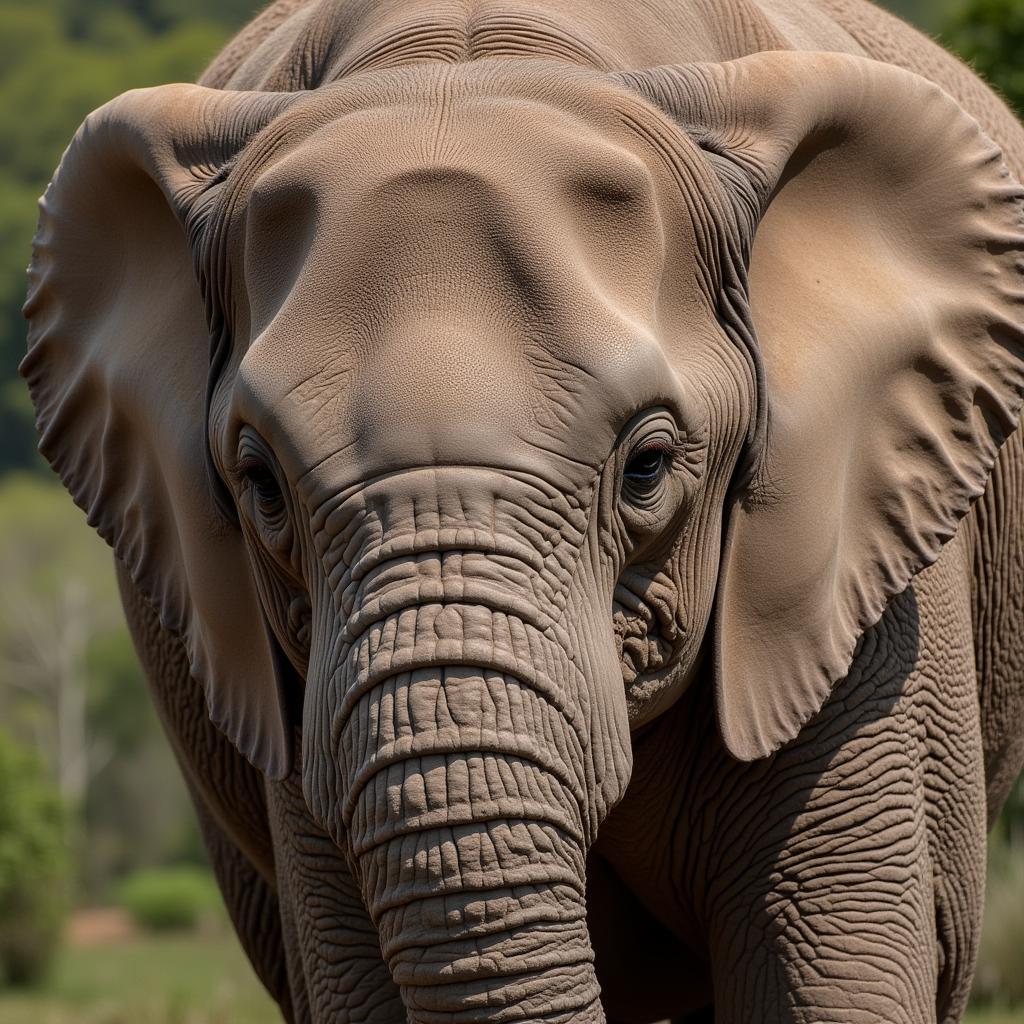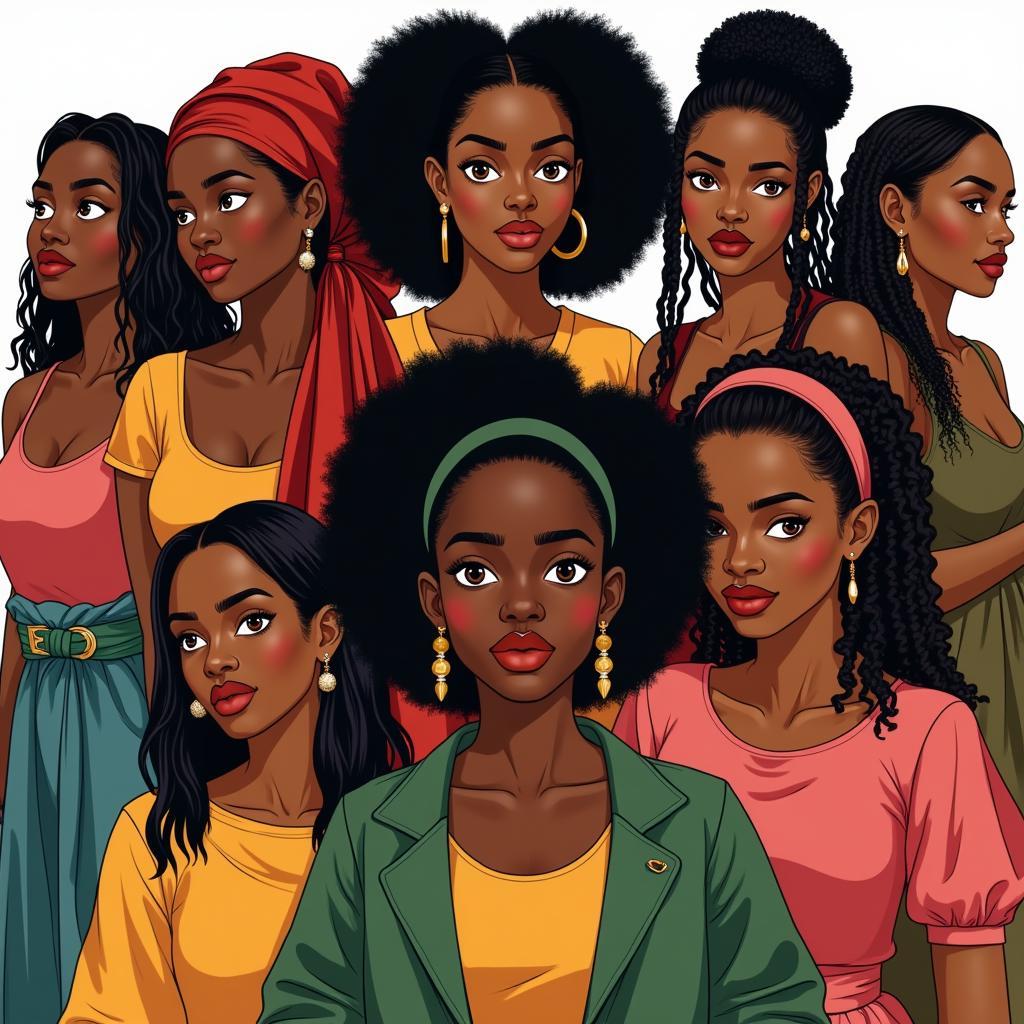Exploring the Landscape of African Gay Films
African gay films offer a unique and often overlooked perspective on the LGBTQ+ experience, specifically within the context of diverse African cultures. These films challenge stereotypes, shed light on social injustices, and celebrate the resilience and diversity of the LGBTQ+ community within Africa. While mainstream cinema has often shied away from portraying these narratives, a growing number of independent filmmakers are stepping forward to share these important stories with the world.
A Complex Tapestry: Navigating Social Realities and Cinematic Expression
 African Gay Film Festival Poster
African Gay Film Festival Poster
It’s essential to recognize that Africa is not a monolith, and the experiences of LGBTQ+ individuals vary greatly across its 54 countries. Factors such as colonial history, religious beliefs, and traditional values have all shaped societal attitudes towards homosexuality. In many African nations, same-sex relationships are criminalized, leading to discrimination, persecution, and limited opportunities for LGBTQ+ individuals.
This complex social and political landscape inevitably influences the production and reception of African gay films. Filmmakers often face censorship, limited funding, and even threats to their safety. Despite these challenges, they continue to create films that give voice to the marginalized and challenge the status quo.
Breaking Barriers: Pioneering Films and Filmmakers
 African Filmmaker Discussing LGBTQ+ Representation
African Filmmaker Discussing LGBTQ+ Representation
One of the groundbreaking films in African LGBTQ+ cinema is “Rafiki” (2018) by Kenyan director Wanuri Kahiu. The film, a tender love story between two young women, made history as the first Kenyan film to be screened at the Cannes Film Festival. Although banned in Kenya for its positive portrayal of same-sex relationships, “Rafiki” garnered international acclaim and sparked conversations about LGBTQ+ rights in Africa.
Another notable film is “The Wound” (2017) by South African director John Trengrove. Set against the backdrop of a traditional Xhosa initiation ceremony, the film explores themes of masculinity, sexuality, and cultural identity. “The Wound” ignited debate in South Africa and internationally, highlighting the complexities of navigating tradition and personal truth.
These films, along with others like “Inxeba” (2017) and “Kanarie” (2018), are not just important for their representation of LGBTQ+ characters but also for their cinematic excellence. They demonstrate that African cinema is evolving, pushing boundaries, and offering fresh perspectives on universal human experiences.
A Global Stage: Finding Audiences and Amplifying Voices
 Audience Watching an LGBTQ+ Themed Film
Audience Watching an LGBTQ+ Themed Film
The rise of international film festivals dedicated to LGBTQ+ cinema has provided a vital platform for African gay films to reach wider audiences. Festivals like the Berlinale Panorama, Frameline in San Francisco, and Outfest in Los Angeles showcase diverse queer narratives, including those from the African continent.
The internet and streaming platforms have also played a crucial role in expanding the reach of these films. Online platforms offer an alternative space for filmmakers to share their work, bypassing traditional distribution channels and censorship barriers. This accessibility has fostered greater awareness and understanding of LGBTQ+ experiences in Africa.
The Future of African Gay Cinema: Towards Greater Visibility and Inclusivity
African gay films face ongoing challenges, but the future holds immense potential. As more filmmakers find their voices and audiences embrace diverse storytelling, these films have the power to challenge prejudices, inspire change, and contribute to a more inclusive and equitable world. By supporting these filmmakers, amplifying their stories, and engaging in meaningful conversations, we can contribute to a brighter future for LGBTQ+ representation in African cinema and beyond.

